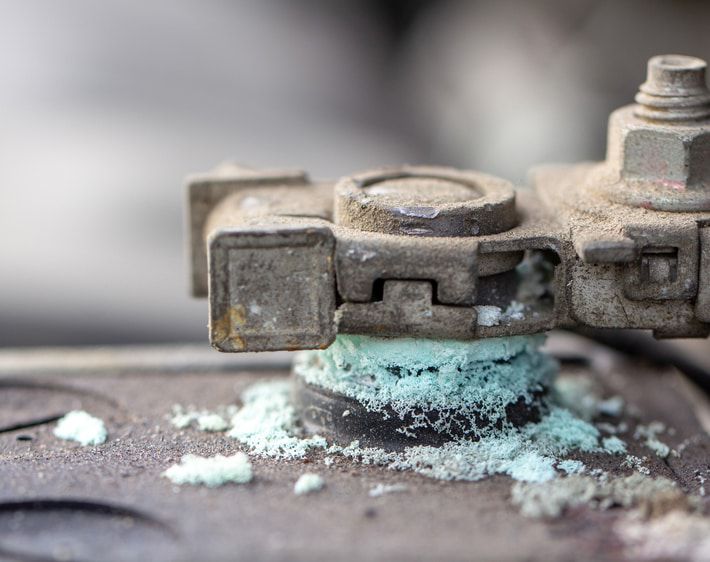Are rising temperatures causing you to slow down? You might not be the only one feeling sluggish under the summer sun. If your car suddenly isn’t performing like it used to, you could have the heat to blame.
While there are plenty of reasons your car battery can fail, hot weather is likely the cause during the warm summer months. But why does heat kill car batteries, and what can you do to prevent your battery from dying in scorching temperatures? Keep reading to learn more.
How Hot Weather Affects Your Car Battery
Just like you rely on fluids to keep your body functioning in the heat, so does your car battery. Sulfuric acid and water make up battery fluid, which creates the chemical reaction that starts and powers your car. High temperatures can cause this fluid to evaporate.
When the battery fluid gets too low, your battery loses its charge, meaning it won’t work as well and can fail completely. Low fluid levels can also cause irreversible corrosion damage to your battery’s internal structure. While batteries naturally corrode over time, heat and a lack of fluid can speed up the process.
Heat and Car Batteries: Signs There Might Be an Issue
Now you know heat can negatively affect your battery, but how can you tell if your battery is failing? Here are some common signs of a battery going bad that you can keep an eye out for:
- Your engine cranks slower than usual when you start your car
- Your headlights or interior lights are dimmer than normal
- You hear a clicking sound when you turn the key in the ignition
- Your check engine or battery light is on
- Your battery fluid is low
- Your battery case looks misshapen or bloated
- Your battery posts are corroded
If you notice any of these bad car battery symptoms, it may be time to get your battery checked or replaced.
Help Your Battery Beat the Heat
Worried about heat draining your car battery? Nothing lasts forever, and all batteries die at some point. However, you can take a few preventative measures to keep the heat from shortening your battery’s life.
- Park your car in a garage, carport, or shaded spot during the day
- Keep your battery post and terminals clean - remove corrosion with a scouring pad or copper wire brush
- Limit the number of short car trips you take to give your battery time to fully recharge
- Don’t use the radio, chargers, or other electronics when your car’s engine is off
- Take your vehicle to a professional to get the battery checked
Under perfect conditions, car batteries tend to last three to five years. If your battery is within this range, you may want to consider having it tested before summer is in full swing. Different batteries will work better in different climates. Be sure to shop around for the best hot weather car battery if you live in an area prone to high temperatures.
Where to Test Your Car Battery
Rising temperatures can take a toll on your body and mood, and they can drain your car battery too. With relaxing beach days and family road trips on the schedule this summer, you don’t want your battery to fail when you need it most. Head to your local Tires Plus for a free battery check, or do a virtual battery test online without even leaving the house.



